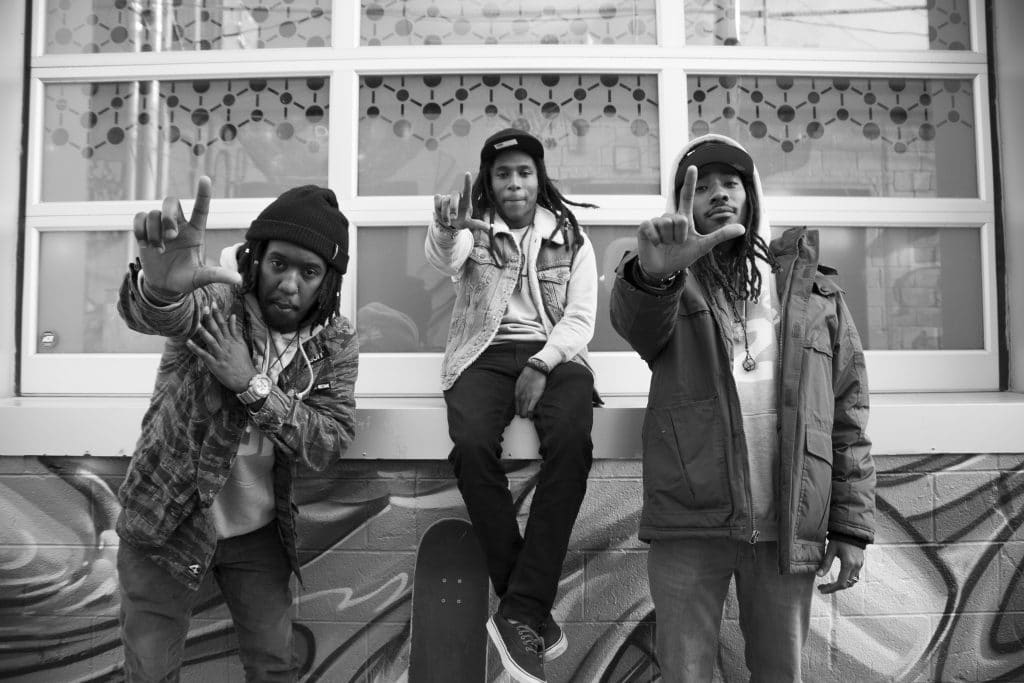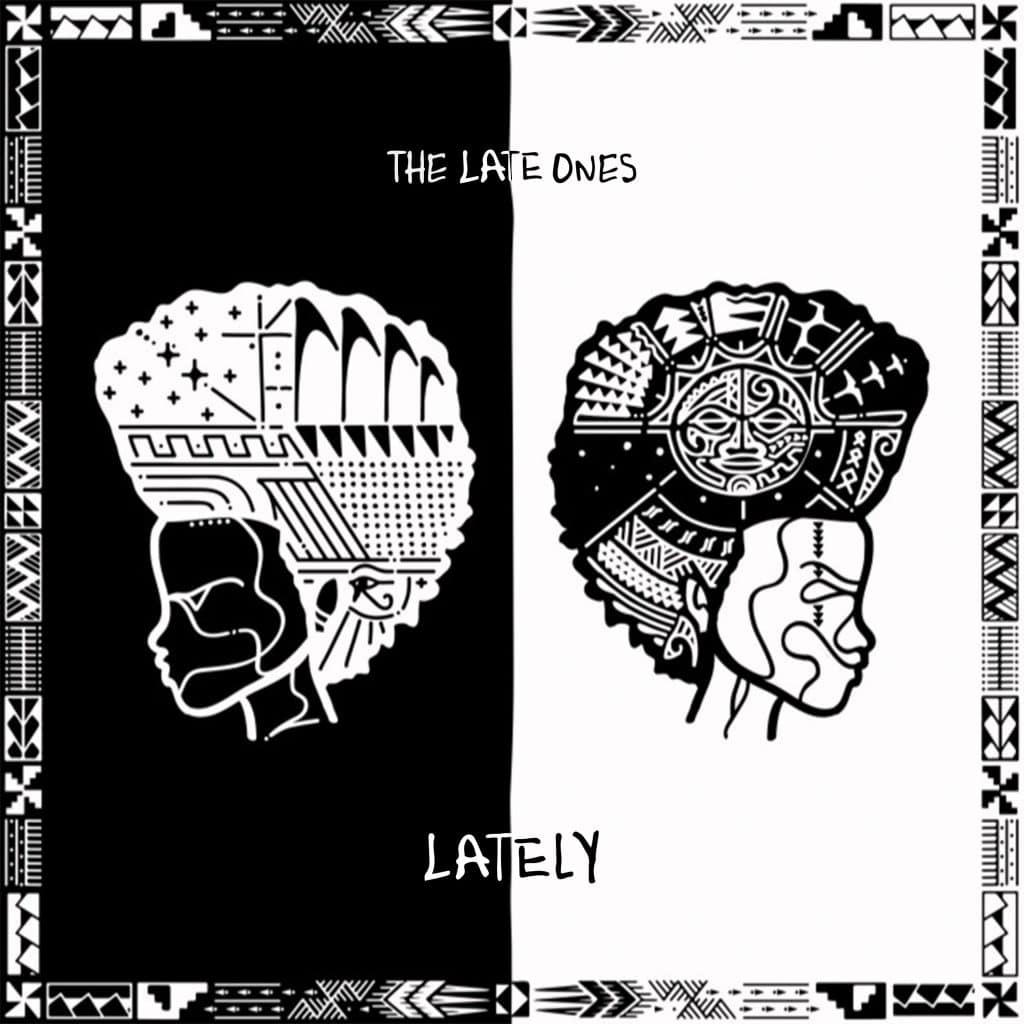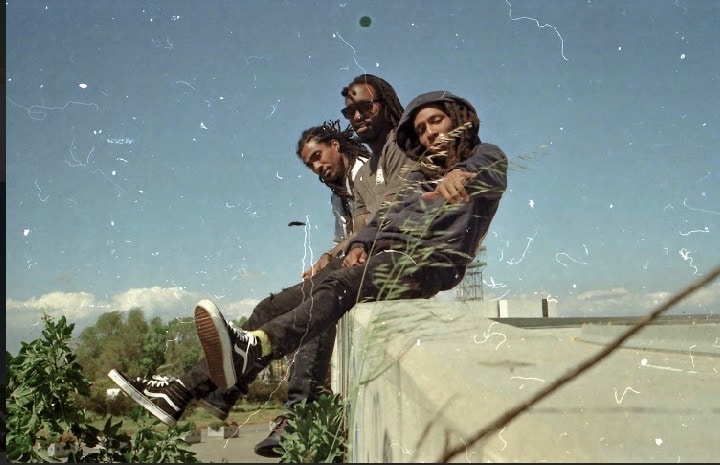It’s relevant at this point to ask yourself, have you ever imagined a noose around your neck? A noose put on by someone else? It’s usually a mob of folks. Have you imagined being strung up on a tree by the neck to hang and die while crowds of local women, men, and children cheer on? If you haven’t, take a moment. If you’ve never feared another human wrangling you to death in public, it’s a good time to learn about lynching – past and present – in America. There is never a good time and it’s always too late. Our reflection is essential to the forward movement towards peace and national healing. There is no shame in understanding. It’s all of our history in the USA, though some think about it more than others.
Music is a rare place where the living and dead can mingle. In this unique shared space, artists can reflect real time polar opposites at once – Light/Dark, Happy/Sad, Heavy/Light – these feelings can be expressed simultaneously in a multitude of ways. They even exist to expose each other and to reflect the complexity of our 3D earthly lifetimes. Reggae has classically delivered thousands of songs that focus on heavy and painful subjects in the setting of dancing and jubilee.
The Late Ones, from Gardena, California are supplying potent and strong additions to the critical category of conscious reggae works with their new Easy Star Records EP “Lately”. I have always appreciated The Late Ones first and foremost for their name, as it recognizes musical history and time honored tradition of memorializing those who have passed, but whose foundations we stand upon. This is most important when forwarding a practice such as music. To honor the dead with something as living as music keeps the memory of the dead alive. It’s an ancient practice. Before reading and writing, there was listening.
The NAACP tells us that from 1882-1968, 4,743 documented lynchings occurred in the United States. I remember hearing of 4 just this year. In 2020 🇺🇸. And that’s with an actual noose – not the many derivatives of lynching and lynch mobs, be they figurative or literal. The majority of those lynchings were carried out by gangs of white Americans against innocent Black Americans. To imagine the feeling of a noose – tightening on your own neck – might be a decent way to begin to empathize and quantize the fear and terror that those 4,743+ hanging dead black bodies, may they rest in power, dripped into our hearts as a nation.
The terror has affected us all drastically. We don’t all think about it the same way though. There are psychological traumas passed on. It’s in the cross generational consciousness. We know this. It’s just more of a clear and present danger for some than for others. Racism is the reason.
The Late Ones want you to listen, and the music will demand just so. “The Noose” caught me off guard. It grabbed me instantly. Left me stuck mean-muggin-nodding and swaying on the first listen. It got heavy rewind. It’s a transfixer. It inspired me to discuss the power of drum and bass with my friend’s 11 and 9 year old kids. They are interested in mixing music. It reminded me about the power in the simplicity of a mix and how much space can move you. It allows powerful singing voices and messages to shine. It lends the support to the heaviest of testimonials. It is proper that this song, “The Noose” by The Late Ones, reflecting the role and lineage of the noose in American life, is accompanied by a rhythm sharp enough to cut your actual head right off. It is fierce drum and bass right from the get. Deservedly so. Setting up the vehicle to carry the voice.
When the first lyric drops “I was born with a noose on my neck – 50 lashes pon’ I back / in a place called America Stars and Stripes was my breakfast” you either relate or you don’t. That’s that cross generational consciousness speaking. Those are The Late Ones. The time to listen up and listen good is made urgent and obvious as the rhythm grabs you. The message is clear. The noose is still tight and it can be felt on the necks of Black Americans in their every step. No matter how red white and blue you feel, the ongoing struggle for the abolition of hate and inequality for all is still a daily battle for many. It still claims the lives of many, and many will continue to fight, possibly for generations. The noose is still tight. Mental slavery is the hardest shackle to shake. Knowing oneself can be the key. Those who know right from wrong persist and thrive, despite all of the odds continually being placed against them. We know we shall win and we are confident in the victory of good over evil.
In a live setting, this family of singers and truth-seekers are the hype of hype on the stage and truly deliver new energy that leaves the night different than it started each and every time I’ve seen them perform. Now that we are on the set break of a lifetime, it’s nice to hear this power continue to culminate in the studio. The Late Ones deliver the forward and powerful vision of a classic reggae vocal trio style with deep dives into hip hop lyricism reminiscent of Pharcyde, J5, and the best of the red eyed west coast backpackers. As singers they glide back and forth between singing and rapping. Clear polyrhythmic storytelling rich with imagery and description flow in and out of classic harmonic stacks delivering the message of the hook. Lyrically the listener is invited into the lived experience of being Black in America, ferociously accompanied by John Asher’s (The Expanders) guillotine of a riddim rising and falling up and down the neck of Chiquis Lozoya’s (The Expanders) bassline.
Though 2020 has been ripe with the reckoning of American racism, reggae and hip hop have always been actively anti-racist in their connected roots. The music is the vehicle and the voice is the message. The campaign will hit until it no longer has to. Winston Rodney’s singing “Do you remember the days of slavery?” and The Late Ones “I was born with a noose round my neck – America the free was a lie going backwards instead of forwards” may have been released 45 years apart, but both speak with the same urgency. There is a demand to recall and reveal the painful reality that 400+ years of slavery and systemic racism leave us living in. If we are to go forward, we must look back. All inna sound.
In celebration of such powerful music and such a beautiful song, it seemed proper to dive deeper in with The Late Ones, and Rootfire was fortunate enough to have some Q & A with Tui and Tau about the themes of the tune, and the origins of the production of such a killer riddim. I want to thank these guys for being who they are and continuing to do what they do and delivering top shelf chronic to our collection of titles to power our soundtracks in the mixtape of life.
RF: Do y’all believe in generational trauma? What role does music play in this?
L81NS: I do believe in generational trauma and that it can be passed down through the blood. As a black/Samoan man I feel it in my soul the pain and hurt that was put on my ancestors. Not saying I succumb to it but I can feel it. I am empowered by their will to survive and become themselves again. That is why we called ourselves The Late Ones. To make sure their sacrifice is never forgotten because remember I would be a slave 80 years ago. Let that sink in. Music especially reggae music brought me to realize what was really going on in the world and all the illusions and lies that have been told. I am forever grateful for this epiphany, otherwise I feel I would be living just that, a lie. Music is freedom and what else could you possibly want?
RF: Do you think there is solidarity in the American reggae music scene?
L81NS: I have made many brothers and sisters in the scene since we have been in it and I would say there is solidarity here. But there is also lots of fuckery and mis-representation of the African culture and of roots reggae music. As one of the only black American reggae bands sometimes I feel reggae is misinterpreted as a happy-go-lucky, “everything is fine” vibe. That is wrong. Especially in these last days. Everything is not fine especially for people of color. We have to fight for what’s right and for people of color we been doing that for hundreds of years without reward it seems. And for someone to take our spiritual/freedom fighting music and turn it into beachy, “lets make money” vibes, it goes against everything reggae stands for. Of course we love unconditionally but we know when it’s time to fight and are blessed to be able to feel out what’s really right and what’s really wrong.
RF: What are the limitations of reggae music? Where can it be most impactful and where does it stop being impactful?
L81NS: There is no limit to reggae music because if you listen closely to all music, there is the influence of reggae or even just the pure African influence of the drums and the root of music itself. All music origins lead back to Africa. It can be most impactful when you are tapping in to roots reggae in a spiritual mindset or in a irie meditation. All the songs I write start with ganja and the bible and meditation. We must understand that reggae music can change the world, literally. But if we continue to water it down with whack lyrics and beach vibes it will slowly start to fade. This is freedom fighting music and we will use it as such especially in these times where it is much needed. Mental Revolution must take place asap.
RF: Would you consider this song political? Personal? Both?
L81NS: I think it is personal as i feel im telling the story of the black man being stolen from Africa, brought to America, sold into slavery that built the USA, spoon fed lies, taught to hate ourselves, and still, look where we are. We may not have come too far but we have come forward as a race and we will be treated equally. We have done all this with a noose round our necks and a target on our backs. BLACK POWER!
RF: Where does most of the reasoning take place for the L81Z? How much do y’all talk about life outside of music?
L81NS: Reasoning happens all the time with us man. Life is the reasoning. We could not see each other for a week but then come together and use our experiences and what’s happening in the world to influence the next track. We really go with the flow and try not to force things and let them come to us. We know Jah is with us so we just wait for him to guide us.
RF: When were the lyrics and the hook written?
L81NS: The lyrics, hook and verses were all written on the spot in the studio in Van Nuys I believe with The Expanders. John Butcher or Devin had come to get us as we had never been to their studio. We went through a couple riddims, heard the track which at the time was called “Government Riddim” I think, so my rebellious ass was immediately drawn to it lol. Started playing with the concept of The Noose and everyone pitched in and I think we told a great story of the journey of the black man. Hope ya’ll dig deep when listening to this one. Pretty heavy.
RF: Who produced the song?
L81NS: I believe all the Expanders boys pitched in and produced this track. Excuse me if I’m wrong but they were just playing beats that day! Lol.
Editor’s Note: Devin Morrison & John Butcher of The Expanders were indeed with The Late Ones in the studio the day they wrote and voiced “The Noose.” Devin engineered the recording of the vocals. The riddim was originally recorded as a jam during the 2008 sessions at Killion Floor Studios that produced The Expanders’ debut album “The Expanders” released in 2011. All of the band members were involved in the jam, but the portion that became the final riddim consists only of Drums (John Asher), Bass (Chiquis Lozoya) & Organ (Dan Hastie). It was originally played as a one-chord riddim, and The Late Ones in post-production added the chord change digitally.
RF: What is life like for y’all right now?
L81NS: When preparation meets opportunity you will always win. So we are just getting prepared for when this pandemic is over so we hit y’all with our new set and music and album. Easy Star Records has been great in backing us and we are so happy to have them in our corner. Other than that, tryna stay alive, not get shot, and be good people, make great healing music. Love y’all man. Stay up be safe!



